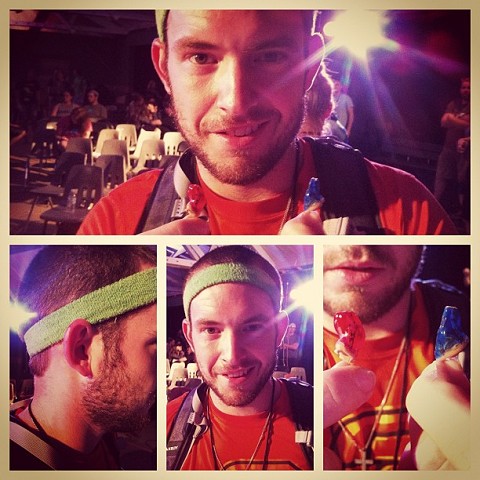I’ve always had an uncomfortable relationship with praying for healing. I can easily get caught up in “What if it doesn’t happen?” Or “What if I my faith isn’t strong enough to believe it will really happen? Or “What if this is the Lord’s time to take someone home?” The magnitude of what I’m asking when I pray for healing seems too overwhelming.
I believe in miraculous healings. I’ve seen them. I’ve heard stories from people I trust. So that’s not my problem. My problem is believing that I’m “good enough” for God to use me to bring it into existence. There’s a fear that I “can’t do it right”. And I become tentative. I know all sorts of things about my identity and authority in Christ – but in this area, it's been hard for me to move from "knowing it" to "doing it".
Even early on in my prayer journey, the catchall phrase “if it is Your will” felt wishy washy and self-protective – more about giving me an out than a true desire to acknowledge God’s power and sovereignty.
Francis McNutt’s book Healing helped some – introducing me to the concept that healing is an integral part of the gospel and not just a sign or wonder that accompanies the gospel proclamation. In Luke 4:18 Jesus proclaimed: “The Spirit of the Lord is upon me, because he has anointed me to proclaim good news to the poor. He has sent me to proclaim liberty to the captives and recovering of sight to the blind, to set at liberty those who are oppressed, ….” It provided some new theological understanding, but still left me praying tentatively.
Then I discovered Mary and Martha’s approach in John 11. When Lazarus became ill they sent a message to Jesus saying “Lord, the one you love is sick.” Throughout John we see people merely stating the problem to Jesus (sickness, lack of wine at the wedding, etc.) without telling Him how He should fix it.
So I clung to that “prayer” – Lord, the one you love is sick [or hurting or whatever the situation was]. It worked great. It got me off the hook of asking for a specific thing. And in many situations, it’s still a model I use today and that I believe is a good model when I don’t know how to pray.
Somewhere along the way, in preparing to do the parable of the insistent friend (Luke 11:5-8) in children’s ministry, the simplicity of it struck me. This parable comes in Jesus’ teaching about prayer and involves a man who goes to his neighbor late at night, after everyone is in bed, to request bread for a visitor who has arrived. It’s a bold and “inappropriate” thing to do – disturb his neighbor late at night. But it teaches us that intercessory prayer is boldly going to the One who can meet a need for someone else that we are unable to meet ourselves. So it helped me take a few baby steps in boldness.
But my hidden secret is that I’m afraid to pray boldly for healing. I think I’m better at praying faithfully than I am at praying boldly. And there is a difference. I believe Scripture affirms both as important but I know the Holy Spirit’s nudge is for me to learn more boldness.
The reality is that I can usually ignore my discomfort. But every so often something happens that disturbs this tentative equilibrium I’ve built. It forces me to face the fear I like to keep hidden.
This past week at World Race training camp, a young man was healed. After profound hearing loss for most of his life, requiring him to wear hearing aids, his team prayed for him and he was healed. Seth Barnes wrote a couple of blogs about it, the first one reporting the healing and the second one about skepticism. The healing is profound but not complete and in the second blog Seth asks the young man about that.
http://www.sethbarnes.com/?filename=the-deaf-hear-the-blind-see – this one also includes a recent story from World Racers in Ukraine about a healing there
http://www.sethbarnes.com/?filename=healing-at-training-camp-the-skeptics – this one includes a brief video of the young man and an interview Seth did with him
I hear similar reports on a regular basis – from the World Racers and from others. And sometimes, those stories begin to nag at me.
So, I’m back to my discomfort – which I know is a good thing.
And at least temporarily, my yearning to be bold is stronger than my fearfulness about what won’t happen.








